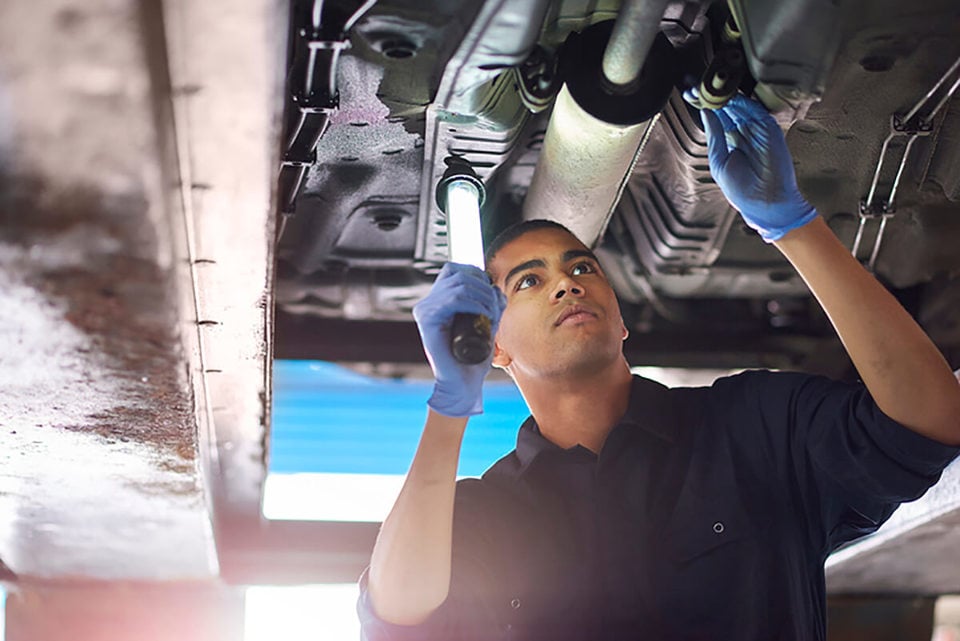A suggestion to relax the frequency of MOTs to help counter the cost-of-living crisis has been widely criticised.
Reports suggest that ministers were asked to pitch ideas at a meeting of the cabinet yesterday (Tuesday, April 26), where transport secretary Grant Shapps suggested relaxing the frequency of MOTs.
Every vehicle that is three years old or over must have a current MOT test certificate and drivers must renew this once a year. The test costs up to £54.85 for a car and £29.65 for a motorcycle.
Jack Cousens, head of roads policy at the AA, said: “Though well intended, moving the yearly £55 spend on an MOT to every two years could make costs worse for drivers with higher repair bills, make our roads more dangerous and would put jobs in the garage industry at risk.”
The Government decided against extending the first MoT test to four years due to safety concerns in 2018.
At the time, ministers said that the majority of responses it received to a consultation were against the proposals on safety grounds, arguing that the savings to motorists were outweighed by the risk to road users and the test often highlights upcoming issues affecting the vehicle.
The fleet sector was divided over the Government proposal and public survey for DfT by Populus showed fewer than half of people were in favour of the change.
RAC head of policy Nicholas Lyes said: “The purpose of an MOT is to ensure vehicles meet a basic level of safety for driving on our roads.
"Shifting it from annually to every two years would see a dramatic increase in the number of unroadworthy vehicles and could make our roads far less safe.”
The Independent Garage Association (IGA) labelled the suggestion "dangerous" saying it would increase costs for motorists long-term.
Stuart James, IGA chief executive, said: “In our opinion this whole plan is dangerous, unwanted and unreasonable.
"This proposal has been scrutinised at least four times that I have known of in the last 15 years, and every time it has been deemed detrimental to road safety.
“It is a fact that in times of economic hardship, motorists cut back on servicing their cars and it is the annual MOT that has kept the UK’s road safety at high levels thanks to the vital safety checks it carries out.
"Saving the cost of an MOT biannually is not worth the price of national road safety.
“This proposal will also fail to save motorists any money long-term as defects will go unnoticed for longer, which at best will cause more damage to vehicles and increase repair costs, and at worst cause unnecessary breakdowns and accidents.”
The IGA said it would be writing to Shapps to make its position clear and explain how none of the dangers and risks have changed since previous proposals to reduce the frequency of the MOT test.
Sue Robinson, chief executive of the National Franchised Dealers Association (NFDA), which represents franchised vehicle dealers in the UK, said that the proposal to reduce the frequency of MOT testing was "ill-thought-out and unsafe".
Robinson continued: “The NFDA is also deeply concerned that this proposal has been raised without prior consultation with the industry.
"The suggested move fails to take into account the investments franchised dealers have made in their equipment, workforce and facilities to provide drivers with an efficient and good value service.
“Additionally, the change would affect business confidence at a time when dealers and repairers alike are already facing a number of challenges as they recover from the pandemic and adapt to meet the Government’s ambitious net-zero targets.
“An MOT is the best way to identify minor issues before they become serious problems, which are often more expensive to fix. The change would significantly increase the risk of defects in vehicles and have a detrimental impact on road safety as well as on motorists’ finances in the long term.
“Instead of reducing the frequency of MOT testing, we encourage the Government to review current road tax rates. This will bring immediate benefits to millions of motorists without hindering road safety".
Safety was also a key concern for Mike Hawes, chief executive of trade body the Society of Motor Manufacturers and Traders (SMMT).
He said: "The industry shares the widespread concern over rising prices and the squeeze on household incomes.
"Safety, however, must always come first and, whilst today’s vehicles are more reliable than ever, regular MOTs ensure safety-critical components such as brakes and tyres which wear out as a function of as a result of normal operation, are properly inspected and maintained.
"Stretching MOT intervals will undermine the safety net at a time when vehicle miles driven are increasing.
"To ensure the safety of our roads, drivers, passengers, pedestrians and other road users inspections and maintenance must be carried out annually following their first presentation in year three."
Cousens says that rather than “fiddling at the edges”, drivers would rather see pump price transparency to revive competition on the forecourts or expanding park and ride schemes so drivers can avoid higher inner-city driving costs.






















Login to comment
Comments
No comments have been made yet.